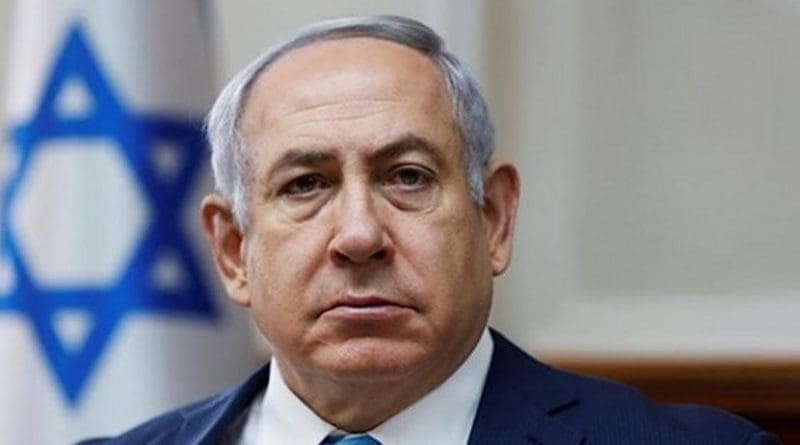Israel Election: A Vote For Maintaining The Status Quo – OpED
By Observer Research Foundation
Given the history of India-Israel ties, not much will change regardless of the government in power in New Delhi.
By Pinak Ranjan Chakravarty
Benjamin “Bibi” Netanyahu is a whisker away from becoming prime minister for the fifth time, a record no Israeli politician has ever achieved. It was not a cakewalk and his opponent, Benny Gantz, a former army chief and the leader of the Blue and White Alliance, and a former army chief, put up a creditable challenge winning almost an equal number of seats in the 120-member Knesset, the Israeli Parliament. What will tilt the balance in favour of Netanyahu’s right-wing Likud Party are the other right-wing and ultra-orthodox Jewish parties that are allied with the Likud. These allies are likely to give the Likud coalition the majority in the Knesset with 65 seats. In Israel, no one party has ever got a majority in the Knesset and all governments since Israel’s independence in 1948 have been coalitions.
Leading the charge on Twitter in congratulating Netanyahu were Indian Prime Minister Narendra Modi and US President Donald Trump. “My dear friend Bibi, Congratulations! You are a great friend of India, and I look forward to continuing to work with you to take our bilateral partnership to new heights,” Modi said. Netanyahu also tweeted that President Trump had telephoned to convey his congratulations. Echoing Modi’s “Sabka Saath, Sabka Vikas”, Netanyahu claimed in his victory speech that he will be the prime minister for all citizens regardless of their political affiliation or their religion.
Netanyahu fought the election on his time-tested platform of security and being the flag-bearer of protecting Israel from internal and external threats. On the campaign trail he accused his opponent of allying with Israeli Arab parties and preparing to create an independent Palestinian State. With a helping hand from President Trump, Netanyahu also flaunted his foreign policy success. Trump permitted the shifting of the United States embassy from Tel Aviv to Jerusalem, a move criticised by the international community as against United Nations Security Council resolutions. Just before the election, Trump also stated that the US would recognise Israeli sovereignty over the occupied Golan Heights, giving Netanyahu another boost. This again led to international criticism but both the Trump administration and Israel brushed it off.
Durable peace in the region has been set back by the Netanyahu government but blame must also be shared by the Palestinian leadership, divided between the Palestine Liberation Organization (PLO)/Palestinian Authority in the West Bank and the Hamas-ruled Gaza. Between Trump and Netanyahu, we may well see a proposal for a new peace plan, backed by important Arab states, which have slowly drifted towards Israel in their anxiety to get the upper hand in their regional struggle for supremacy with Iran. Not too many details of this plan are available but speculation has it that it will fall short of the “two-state solution” with pre-war 1967 borders for Israel and Palestine, as per the UN resolutions.
Netanyahu has already declared that he plans to annex the Jewish settlements in the West Bank, a move which will also directly challenge international opinion and UN resolutions. There is little hope that Israel will respect international opinion as long as the US backs the country. Saeb Erakat, secretary-general of the PLO has commented bitterly that Israeli voters have elected Netanyahu to continue the endless occupation of the Palestinian people.
It may not be all smooth sailing for Netanyahu. In February this year, the Israeli attorney general decided to indict him on charges of bribery, fraud and breach of trust in three cases. Netanyahu is accused of accepting expensive gifts from businessmen and handing out favours to media in return for favourable publicity. These cases will now become active after the election. Netanyahu has denied any wrongdoing. If he is charged in court, the Israeli supreme court may direct him to resign. This Damocles’ sword could be a potential game changer.
For India, Modi’s tweet indicates continuity in bilateral ties which have been strengthened under the National Democratic Alliance government. India has successfully navigated its relationships with all countries in West Asia, insulating ties with individual countries and de-hyphenating Israel from Palestine. Israel will continue to remain a strong defence and technology partner for India. Given the history of India-Israel ties, not much will change regardless of which government is in power in New Delhi.
This article originally appeared in Hindustan Times.


Netanyahu is a winner.